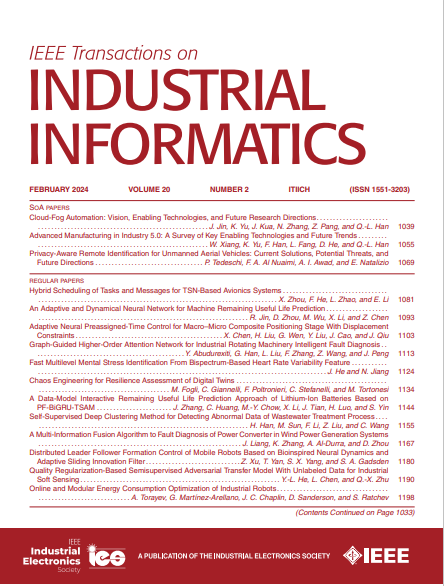面向安全分布式学习的稳健区块链分馈学习模型
IF 9.9
1区 计算机科学
Q1 AUTOMATION & CONTROL SYSTEMS
引用次数: 0
摘要
分裂学习(SFL)是分布式协作机器学习中的一种新方法,它将联邦学习(FL)和分裂学习(SL)相结合。虽然SFL受益于FL的速度和SL的效率,但它也继承了它们的缺点,包括信任问题,如模型中毒和训练劫持攻击,以及额外的可靠性问题,如单点故障和缺乏动机。现有的解决方案已经集成了区块链技术来解决所有可靠性问题和中毒攻击,但仅限于FL。此外,解决训练劫持的解决方案有限,例如SplitGuard协议。在本文中,我们提出了两种解决方案,经过验证的区块链分裂学习(VBSFL)和VBSL,重点关注VBSFL,它通过构建VBFL并结合SplitGuard协议来利用区块链技术来应对这些挑战。实际数据集的实验结果证明了该方法的有效性、高效性和可扩展性。本文章由计算机程序翻译,如有差异,请以英文原文为准。
VBSFL: A Robust Blockchained Split-Fed Learning Model for Secured Distributed Learning
Split-fed learning (SFL) is a novel approach within distributed collaborative machine learning that combines federated learning (FL) and split learning (SL). While SFL benefits from FL's speed and SL's efficiency, it also inherits their disadvantages, including trust issues such as model poisoning and training-hijacking attacks, and additional reliability concerns such as a single point of failure and lack of motivation. Existing solutions have integrated blockchain technology to address all reliability issues and poisoning attacks, but are limited to FL. Moreover, there are limited solutions to address training-hijacking, such as the SplitGuard protocol. In this article, we propose two solutions, validated blockchained split-fed learning (VBSFL) and VBSL, focusing on VBSFL, which leverages blockchain technology by building on VBFL and incorporating the SplitGuard protocol to address these challenges. Experimental results with real-world datasets demonstrate the effectiveness, efficiency, and scalability of the proposed approach.
求助全文
通过发布文献求助,成功后即可免费获取论文全文。
去求助
来源期刊

IEEE Transactions on Industrial Informatics
工程技术-工程:工业
CiteScore
24.10
自引率
8.90%
发文量
1202
审稿时长
5.1 months
期刊介绍:
The IEEE Transactions on Industrial Informatics is a multidisciplinary journal dedicated to publishing technical papers that connect theory with practical applications of informatics in industrial settings. It focuses on the utilization of information in intelligent, distributed, and agile industrial automation and control systems. The scope includes topics such as knowledge-based and AI-enhanced automation, intelligent computer control systems, flexible and collaborative manufacturing, industrial informatics in software-defined vehicles and robotics, computer vision, industrial cyber-physical and industrial IoT systems, real-time and networked embedded systems, security in industrial processes, industrial communications, systems interoperability, and human-machine interaction.
 求助内容:
求助内容: 应助结果提醒方式:
应助结果提醒方式:


